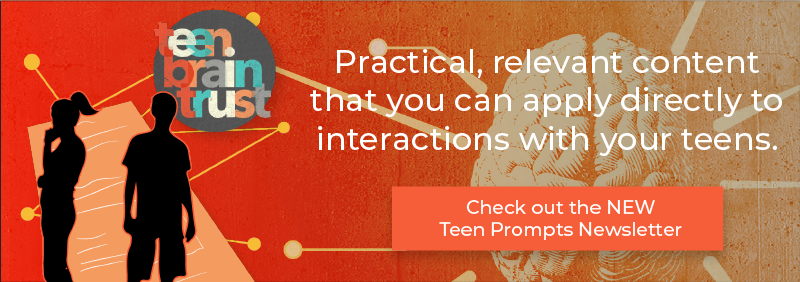When’s the last time you questioned the nature of your reality?
Every human being on this planet is out there living their life, right now, believing things about themselves and the world that don’t match up with reality and those beliefs are affecting their behavior. Yes, even you, reading this article.
Alas, there is no evil overlord out there pulling the wool over our eyes. Perceiving an altered version of reality is just a natural part of being human. It’s a coping mechanism built right into our brains.
Human beings have a really strong ability to make connections and recognize patterns. A lot of the time the patterns and connections we make are helpful and good, (Ex. When we’re young and we burn our hand on the stove we make a connection between the hot stove and the burn, then we don’t burn our hand on the stove again). But sometimes we make connections between things that are unrelated (Ex. I don’t do as well as my friend in a math test in 2nd grade so I must be bad at math).
Once we believe something, whether or not it’s true, we look for additional evidence in the world around us to back up our beliefs. This is a phenomena called confirmation bias. If I believe that I’m bad at math then I’ll look for examples of when I can’t (or don’t want to) do math to prove to myself that I am in fact bad at math.
Believing that you’re bad at math is an example of All or Nothing Thinking (or Black and White thinking). This is a very common cognitive distortion in which there’s an inability or unwillingness to see shades of grey. Nobody is bad at math. ‘Math’ is a blanket term for equations involving numbers and numerical concepts. You can’t be bad at math; you either understand certain concepts and equations and how to apply them or you don’t. Someone who says they’re bad at math isn’t dealing with the many shades of grey between understanding zero mathematical concepts and understanding them all (no one can understand everything about math btw, humanity hasn’t yet plumbed the depths of everything that math has to offer). The phrase ‘I’m bad at math’ is a distortion, it will never be true to reality no matter who says it or why.
‘All or Nothing Thinking’ is just one kind of cognitive distortion. There are, in fact, lots of ways human beings can get things twisted. We’re going to go over 14 of them right now.
Note: Shout out to David Burns, one of the leading writers on the subject of cognitive distortions. Most of the distortions listed below are pulled from ‘The Feeling Good Handbook’ (https://feelinggood.com/books/).
1. All-or-Nothing Thinking / Black-and-White Thinking / Polarized Thinking
This is what we were just referring to in the example about being good or bad at math. This distortion is characterized by only perceiving extremes or not being able to see shades of grey. In this distortion someone might believe that if they are not perfect then they must be awful.
2. Overgeneralization
This distortion takes one example and uses it as evidence for a broader truth. If a person is left by their romantic partner they might make that one instance mean that they’re unloveable or undesirable to anyone. Overgeneralizing can lead to negative thoughts about yourself and/or the things around you based on individual or limited experiences.
3. Mental Filter
This distortion is when you focus on some information and exclude other information. The confirmation bias we discussed earlier is a good example. If I believe I’m bad at math I’ll focus on information that proves I’m bad at math. When I succeed at solving or understanding some math equations I might just write that off as a fluke or a one time thing, whereas when I fail at solving or understanding math equations I’ll focus on and promote that information because it supports what I already believe.
Mental filters can create overly negative views of people and situations by only focusing on the negative aspects while ignoring the positive.
4. Disqualifying the Positive
This is similar to a mental filter but instead of ignoring positive aspects all together this distortion acknowledges positive experiences and information but then rejects them as invalid.
A person who has negative beliefs about their appearance might acknowledge when people tell them they look nice but think that they’re lying or just being polite.
This distortion is particularly pervasive as it can keep negative beliefs alive even when presented with direct contradictory evidence.
5. Jumping to Conclusions - Mind Reading
While humans generally have a strong ability to read other people, it’s impossible to know exactly what someone else is thinking (unless they tell you). This distortion primarily refers to negative interpretations that we jump to when reading other people.
Seeing a loved one with an unpleasant expression and jumping to the conclusion that they’re thinking something negative about you is a common example of this distortion.
6. Jumping to Conclusions – Fortune Telling
This distortion calls out the tendency to make predictions about the future based on little or no evidence and then really believing that they’re the truth.
A common example of this is people predicting that a relationship they’re considering (or are in) won’t work out long term based on the fact that their previous relationships didn’t work out.
7. Magnification and Minimization
Sometimes known as “Catastrophizing” magnification exaggerates the meaning, importance, or likelihood of things. People in this distortion fall victim to ‘what if’ questions, ‘what if it all goes terribly wrong’, ‘what if the worst happens to me’, etc . . .. Phobias are a common result of magnification. Even though the consequences of getting a spider on us are usually very small these consequences become magnified in our minds to the point where even being around spiders becomes unbearable.
Magnifications can also be internal, we might make a small mistake or slip in a conversation with a loved one and magnify it so it occurs to us as if we’ve ruined the relationship.
Minimization is the opposite of magnification. We can sometimes be confronted by large problems that we’d rather not deal with or confront, in these instances we write them off as ‘probably not being a big deal’. Many people delay or refuse to seek medical treatment because they minimize negative symptoms.
8. Emotional Reasoning
Our emotions have a lot of influence over us and can overrule our ability to reason and think rationally. Emotional reasoning is when a person’s emotions supersedes their thinking, erasing rationality and logic. A person using emotional reasoning assumes that their emotions reflect the way things are. This can be summed up in the idea, “I feel it so it must be true”.
But our emotions are not the truth and there can be consequences when we conflate the two. We may feel like our kids are being lazy and irresponsible but that doesn’t make it true.
9. Shoulds
Shoulds are statements that you make to yourself about what you (or others) “should” do. They impose a set of expectations on yourself and others that will likely not be met, at least not all of the time.
When we inevitably don’t do what we say we ‘should’ do, we experience feelings of guilt or frustration, or that there’s something wrong with us. Likewise if other people don’t live up to our ‘shoulds’ we can get angry or engage in the belief that there is something wrong with them. This is a trap parents often fall into, believing that there’s a way that their kids ‘should’ be behaving.
The consequence of engaging in ‘shoulds’ is often guilt, anger, resentment, and regret.
10. Labeling (and mislabeling)
Basically an extreme form of overgeneralization, labeling is when we assign value judgements based on little evidence or experience. For example, I may meet someone who shares an opinion that I disagree with and label them ‘stupid’ in my mind.
Mislabeling involves attaching highly emotional or loaded language when labeling. Using curse words in descriptions of people or events is an indicator of mislabeling (they’re a f---ing idiot, she’s a total b----, etc . . .).
11. Personalization
People are generally very ego-centric (no offense) and tend to think that things are about them even when they’re not. Personalization refers to this phenomena. This distortion involves taking things personally and/or blaming yourself for things even if there’s no logical reason to think you are to blame.
For example, it’s common for children to personalize and blame themselves if their parents get divorced. This distortion can also apply to mundane situations like blaming yourself for your friend not having a good time when you go out together or extreme cases where you believe you are the cause of every negative emotion you see in the people around you.
12. Control Fallacies
There are two different versions of the control fallacy. In the first, we believe that we have zero control over our lives and circumstances and are victims of fate. In the second, we believe that we are 100% in control of our lives and circumstances which makes us personally responsible for every problem up to and including the emotions of the people around us. Both of these beliefs are inaccurate and come with their own issues.
No one has 100% control over everyone and no one is completely powerless. Even when we find ourselves completely unable to change our circumstances we still have control over the way we think about and approach those circumstances.
13. Fallacy of Fairness
Many people have a belief that we live in a world that is inherently fair and balanced. While many of us would like to believe that this is true, this belief is not based on fact or reason. People who believe in a fair world may feel anger, resentment, frustration, and/or hopelessness when they’re inevitably faced with proof of life’s unfairness.
14. Fallacy of Change
If you’re a parent (or have ever been in a relationship) you’re probably acquainted with the fallacy of change. This distortion is based around the idea that others will change if we encourage and/or discourage them enough. This goes hand in hand with the distorted belief that our personal happiness or success in life is dependent on other people. If we believe that our happiness or success is dependent on others, then the only way for us to get what we want is to change the people around us.
Parents who believe that they’ll be happier, more relaxed, and/or less stressed if only their kids would act differently have fallen victim to this fallacy.
What can we do when we catch ourselves engaging in cognitive distortions?
There are a number of effective, evidence-based techniques and practices that we cover in our article on Cognitive Reframing.
The first step in all of these techniques and practices is to first identify what distortions you are engaging in. If you’re interested in doing some self-examination in this area we hope the list in this article will prove helpful.
by Robin Friend Stift - Co-Creator & Lead Course Designer for Teen Brain Trust
and Dr. Dana Dorfman - Lead Advisor for Teen Brain Trust | visit site
Share this Post


